- Home
- Nora Roberts
Rules of the Game Page 2
Rules of the Game Read online
Page 2
“Yes, but—” The crowd roared as the home team took the field. Brooke watched the men move to their positions, dressed in dazzling white with navy-blue caps and baseball socks. They didn’t look foolish, she mused as the fans continued to cheer. They looked rather heroic. She focused on the man on third.
Parks’s back was to her as he kicked up a bit of dust around the base. But Brooke didn’t strain to see his face. At the moment, she didn’t need it—his build was enough. Six-one, she estimated, a bit surprised by his height. No more than a hundred and sixty pounds—but not thin. She leaned her elbows on the rail, resting her chin on her hands.
He’s lanky, she thought. He’ll show off clothes well. Parks dipped for a grounder then returned it to short. For an instant, Brooke’s thoughts scattered. Something intruded on her professional survey that she quickly brushed aside. The way he moved, she thought. Catlike? No. She shook her head. No, he was all man.
She waited, unconsciously holding her breath as he fielded another grounder. He moved loosely, apparently effortlessly, but she sensed a tight control as he stepped, bent, pivoted. It was a fluid action—feet, legs, hips, arm. A dancer had the same sort of nonchalant perfection after practicing a basic routine for years. If she could keep him moving, Brooke mused, it wouldn’t matter if the man couldn’t say his own name on camera.
There was an unexpected sexuality in every gesture. It was there even when he stood, idly wanting to field another practice ball. It might just work after all, Brooke reflected as her eyes roamed up his body, brushing over the blond curls that sprang around the sides and back of his cap. It might just . . .
Then he turned. Brooke found herself staring full into his face. It was long and lean like his body, a bit reminiscent of the gladiators she’d been thinking about earlier. Because he was concentrating, his full, passionate mouth was unsmiling; the eyes, almost the same shade as the navy hat that shaded them, were brooding. He looked fierce, almost warlike, definitely dangerous. Whatever Brooke had been expecting, it hadn’t been this tough, uncompromisingly sexy face or her own reaction to it.
Someone called out to him from the stands. Abruptly, he grinned, transforming into a friendly, approachable man with an aura of easy charm. Brooke’s muscles relaxed.
“What do you think of him?”
A bit dazed, Brooke leaned back in her chair and absently munched on her hot dog. “He might work,” she murmured. “He moves well.”
“From what I’ve been told,” Claire said dryly, “you haven’t seen anything yet.”
As usual, Claire was right. In the first inning, Parks made a diving catch along the baseline at third for the final out. He batted fourth, lining a long single to left field that he stretched into a double. He played, Brooke thought, with the enthusiasm of a kid and the diabolical determination of a veteran. She didn’t have to know anything about the game to know the combination was unstoppable.
In motion, he was a pleasure to watch. Relaxed now, the first staggering impression behind her, Brooke began to consider the angles. If his voice was as good as the rest of him, she mused. Well . . . that was yet to be seen. After polishing off another hot dog, she resumed her position leaning against the rail. The Kings were ahead 2-1 in the fifth inning. The crowd was frantic. Brooke decided she would use some action shots of Parks in slow motion.
It was hot and still on the diamond. A fitful breeze fluttered the flag and cooled the spectators high up in the stands, but below, under the lights, the air was thick. Parks felt the sweat run down his back as he stood on the infield grass. Hernandez, the pitcher, was falling behind on the batter. Parks knew Rathers to be a power hitter who pulled to the left. He planted himself behind the bag and waited. He saw the pitch—a waist-high fast ball—heard the crack of the bat. In that one millisecond, he had two choices: catch the ball that was lined hard at him or end up with a hole in his chest. He caught it, and felt the vibration of power sing through his body before he heard the screams of the crowd.
A routine catch, most would say. Parks was surprised the ball hadn’t carried him out of the stadium. “Got any leather left on your glove?” the shortstop called to him as they headed back to the dugout. Parks shot him a grin before he let his eyes drift up to the stands. His eyes locked on Brooke’s, surprising them both.
In reaction, Parks slowed a bit. Now there was a face, he thought, a man wouldn’t see every day. She looked a bit like a ravished eighteenth-century aristocrat with her wild mane of hair and English rose skin. He felt an immediate tightening in his stomach. The face exuded cool, forbidden sex. But the eyes . . . His never left them as he approached the dugout. The eyes were soft-gray and direct as an arrow. She stared back at him without a blink or a blush, not smiling as most fans would do if they were bold, or looking away if they were shy. She just stared, Parks thought, as if she were dissecting him. With simultaneous twinges of annoyance and curiosity, he stepped into the dugout.
He thought about her as he sat on the bench. Here, the atmosphere was subdued and tense. Every game was important now if they were to maintain their lead and win the division pennant. Parks had the personal pressure of having a shot at a four hundred batting average for the year. It was something he struggled not to think about and was constantly reminded of by the press. He watched the leadoff batter ground out and thought of the redhead in the box behind third base.
Why had she looked at him like that? As if she wondered how he would look on a trophy case. With a soft oath, Parks rose and put on his batting helmet. He’d better get his mind off the little number in the stands and on the game. Hernandez was slowing down, and the Kings needed some insurance runs.
The second batter bounced one to shallow right and beat out the ball. Parks went to stand on deck. He stretched his arms over his head, one hand on the grip, the other on the barrel. He felt loose and warm and ready. Irresistibly, his eyes were drawn to his left. He couldn’t see Brooke clearly from this distance, but he sensed she watched him still. Fresh annoyance broke through him. When the batter flied out, Parks approached the box.
What was her problem, anyway? he demanded as he took a testing swing. It would have been simpler if he could have characterized her as a typical Baseball Annie, but there was nothing typical about that face—or about those eyes. Planting his feet, he crouched into position and waited for the pitch. It came in high and sweet. Parks took a cut at it just before the ball dropped.
Coolly, he stepped out of the box and adjusted his helmet before he took his batting stance again. The next ball missed the corner and evened the count. Patience was the core of Parks’s talent. He could wait, even when the pressure was on, for the pitch he wanted. So he waited, taking another ball and an inside strike. The crowd was screaming, begging for a hit, but he concentrated on the pitcher.
The ball came at him, at ninety miles an hour, but he had it judged. This was the one he wanted. Parks swung, getting the meat of the bat on the ball. He knew it was gone the moment he heard the crack. So did the pitcher, who watched his two-strike pitch sail out of the park.
Parks jogged around the bases while the crowd roared. He acknowledged the slap of the first base coach with a quick grin. He’d never lost his childlike pleasure in hitting the long ball. As he rounded second, he automatically looked over at Brooke. She was sitting, chin on the rail, while the crowd jumped and screamed around her. There was the same quiet intensity in her eyes—no light of congratulations, no pleasure. Irritated, Parks tried to outstare her as he rounded third. Her eyes never faltered as he turned for home. He crossed the plate, exhilarated by the homer and furious with an unknown woman.
“Isn’t that marvelous?” Claire beamed over at Brooke. “That’s his thirty-sixth home run this season. A very talented young man.” She signaled a roving concessionaire for another drink. “He was staring at you.”
“Mmm-hmm.” Brooke wasn’t willing to admit that her pulse rate had soared with each eye contact. She knew his type—good-looking, successful and heartless
. She met them every day. “He’ll look good on camera.”
Claire laughed with the comfortable pleasure of a woman approaching fifty. “He’d look good anywhere.”
Brooke’s answer was a shrug as the game went into its seventh inning. She paid no attention to the score or to the other players as she watched Parks steadily. She remained, arms over the rail, chin on hands, booted feet crossed. There was something about him, she mused, something beyond the obvious attraction, the basic sexuality. It was that looseness of movement overlying the discipline. That’s what she wanted to capture. The combination would do more than sell de Marco’s clothes, it would typify them. All she had to do was guide Parks Jones through the steps.
She’d have him swinging a bat in immaculately sophisticated sports clothes—maybe riding through the surf in de Marco jeans. Athletic shots—that’s what he was built for. And if she could get any humor out of him, something with women. She didn’t want the usual adoring stares or knowing looks, but something fanciful and funny. If the script writers could pull it off and Jones could take any sort of direction. Refusing to look at the ifs, Brooke told herself she would make it work. Within the year, every woman would want Parks Jones and every man would envy him.
The ball was hit high and was curving foul. Parks chased after it, racing all the way to the seats before it dropped into the crowd four rows back. Brooke found herself face-to-face with him, close enough to smell the faint muskiness of his sweat and to see it run down the side of his face. Their eyes met again, but she didn’t move, partly because she was interested, partly because she was paralyzed. The only thing that showed in her eyes was mild curiosity. Behind them there were shouts of triumph as someone snagged the foul as a trophy.
Enraged, Parks stared back at her. “Your name?” he demanded in undertones.
He had that fierce, dangerous look on his face again. Brooke schooled her voice to calmness. “Brooke.”
“All of it, damn it,” Parks muttered, pressed for time and furious with himself. He watched one thin eyebrow lift and found himself wanting to yank her out of the stands.
“Gordon,” Brooke told him smoothly. “Is the game over?”
Parks narrowed his eyes before he moved away. Brooke heard him speak softly. “It’s just beginning.”
Chapter 2
Brooke had been expecting the call—after all, he had her name, and her name was in the book. But she hadn’t been expecting it at six-fifteen on a Sunday morning.
Groggily, she groped for the phone as it shrilled, managing to grip the receiver as the cradle fell heavily to the floor. “’Lo,” she mumbled without opening her eyes.
“Brooke Gordon?”
“Mmm.” She snuggled back into the pillow. “Yeah.”
“It’s Parks Jones.”
Instantly alert, Brooke opened her eyes. The light was soft and dim with dawn, early birds just beginning to chirp. She fumbled for the dented windup alarm beside her bed, then scowled at the time. Biting back a torrent of abuse, she kept her voice soft and sulky. “Who?”
Parks shifted the receiver to his other hand and scowled. “Parks Jones, third base. The Kings game the other night.”
Brooke yawned, taking her time about fluffing up her pillow. “Oh,” was all she said, but a smile flashed wickedly.
“Look, I want to see you. We’re flying back after the game in New York this afternoon. How about a late dinner?” Why was he doing this? he asked himself as he paced the small hotel room. And why, in God’s name, wasn’t he doing it with a bit more style?
“Dinner,” Brooke repeated languidly while her mind worked fast. Wasn’t it just like his type to expect a woman to have no plans that couldn’t be altered to suit him? Her first instinct was to give him a cold refusal, then her sense of the ridiculous got the better of her. “Well . . .” She drew out the word. “Maybe. What time?”
“I’ll pick you up at nine,” Parks told her, ignoring the maybe. When he couldn’t get a woman out of his head for three days, he was going to find out why. “I’ve got the address.”
“All right, Sparks, nine o’clock.”
“Parks,” he corrected tersely and broke the connection.
Falling back on the pillow, Brooke started to laugh.
She was still in high good humor when she dressed that evening. Still, she thought it was too bad that the file she had read on Parks hadn’t contained a bit more than all those baseball statistics. A few personal details would have given her more of an edge. What would Parks Jones have to say if he knew he was taking his future director to dinner? she wondered. Somehow Brooke didn’t think he’d be too pleased when he learned she’d left out that little piece of information. But the whole scenario was too good to miss. And there was the fact that he’d touched off something in her that she wanted to get out of her system before they started to work together.
Wrapped in a bath towel, Brooke pondered her wardrobe. She didn’t date often—her choice. Early experience had influenced her attitude toward men. If they were good-looking and charming, Brooke steered clear of them.
She’d been only seventeen when she’d met her first good-looking charmer. He’d been twenty-two and fresh out of college. When he’d come into the diner where she had worked, Clark had been quick with a joke and generous with a tip. It had started with a late movie once or twice a week, then an afternoon picnic in the park. It hadn’t bothered Brooke that he wasn’t working. He’d told her he was taking the summer off before he settled down to a job.
His family was well connected, genteel and Bostonian. The genteel, Clark had explained with an acerbic humor that had fascinated her, meant there were plenty of heirlooms and little ready cash. They had plans for him that he was consistently vague about with the carelessness of the young. He’d mentioned his family now and again—grandparents, sisters—with a humor that spoke of an intimacy she envied almost painfully. Clark could make fun of them, Brooke realized, because he was one of them.
He’d needed a bit of freedom, he’d claimed, a few months to flow after the regimentation of college. He wanted to be in touch with the real world before he chose the perfect career.
Young and starved for affection, Brooke had soaked up everything he’d told her, believed every line. He had dazzled her with an education she had wished for but had never been able to have. He’d told her she was beautiful and sweet, then had kissed her as though he meant it. There had been afternoons at the beach with rented surfboards she’d hardly noticed that she’d paid for. And when she’d given him her innocence in a kind of panicked, shamed excitement, he had seemed pleased with her. He’d laughed at her naive embarrassments and had been gentle. Brooke had thought she’d never been happier.
When he’d suggested they live together, she’d agreed eagerly, wanting to cook and clean for him, longing to wake and sleep with him. The fact that her meager salary and tips now supported both of them had never crossed her mind. Clark had talked of marriage the same way he had talked of his work—vaguely. They were something for the future, something practical that people in love shouldn’t dwell on. Brooke had agreed, rosily happy with what she’d thought was her first real home. One day they would have children, she had thought. Boys with Clark’s handsome face, girls with his huge brown eyes. Children with grandparents in Boston who would always know who their parents were and where their home was.
For three months she’d worked like a Trojan, setting aside part of her small salary for the future Clark always talked of while he pursued what he called his studies and systematically rejected all the jobs in the want ads as unsuitable. Brooke could only agree. To her, Clark was much too smart for any manual labor, much too important for any ordinary position. When the right job came along, she knew he would simply stride into it then zoom to the top.
At times he’d seemed restless, moody. Because she had always had to steal her own privacy, Brooke had left him to his. And when he snapped out of it, he’d always been bursting with energy and plans. Let’s go
here, let’s go there. Now, today. Tomorrow was always years away to Clark. To Brooke, for the first time in seventeen years, today was special. She had something—someone—who belonged to her.
In the meantime, she’d worked long hours, cooked his meals and hoarded her tips in a small apothecary jar on a shelf in the kitchen.
One night Brooke had come home from a late shift to find that Clark had gone, taking with him her small black-and-white television set, her record collection and her apothecary jar. A note was in its place.
Brooke,
Got a call from home. My parents are putting on the pressure—I didn’t know it would start so soon. I should have told you before, but I guess I kept thinking it would just go away. An old family tradition—a merger with my third cousin, as in matrimony. Hell, it sounds archaic, but it’s the way my people work. Shelley’s a nice girl, her dad’s a connection of my dad’s. I’ve been more or less engaged to her for a couple of years, but she was still at Smith, so it didn’t seem important. Anyway, I’ll slip into her family’s business. Junior executive with a shot at the V.P. in five years or so. I guess I hoped I’d tell them to take a leap when the time came, but I can’t. I’m sorry.
There’s no fighting a wall of family and old money and stiff New England practicality, babe, especially when they keep reminding you that you’re the heir apparent. I want you to know that these last couple of months I’ve had more breathing space than I’ve had in a long time, and I suppose than I’ll have in an even longer time.
I’m sorry about the TV and stuff, but I didn’t have the cash for the plane fare and the time wasn’t right to tell my folks I’d already blown my savings. I’ll pay you back as soon as I can.
I kept hoping it wouldn’t have to be this way, but I’m backed into a corner. You’ve been great, Brooke, really great. Be happy.
Clark
Brooke had read the note twice before all the words registered. He’d gone. Her things hadn’t mattered but he had. Clark was gone and she was alone—again—because she hadn’t graduated from Smith or had a family in Boston or a father who could offer someone she loved a comfortable job so he’d choose her. No one had ever chosen her.
Brooke had wept until she was drained, unable to believe that her dreams, her trust and her future had been destroyed all in one instant.
Then she had grown up fast, pushing her idealism behind her. She wasn’t going to be used ever again. She wasn’t going to compete ever again with women who had all the advantages. And she wasn’t going to slave in a steamy little diner for enough money to keep herself in a one-room apartment with dingy paint.
She had torn the note into tiny pieces, then had washed her face with icy water until all the traces of all the tears were gone.
Walking the pavement with all the money she had left in her pocket, she had found herself in front of Thorton Productions. She had gone in aggressively, belligerently, talking her way past the receptionist and into the personnel office. She’d come out with a

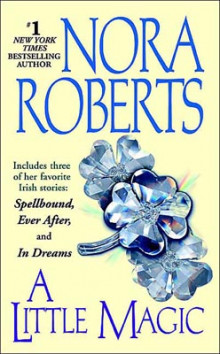 A Little Magic
A Little Magic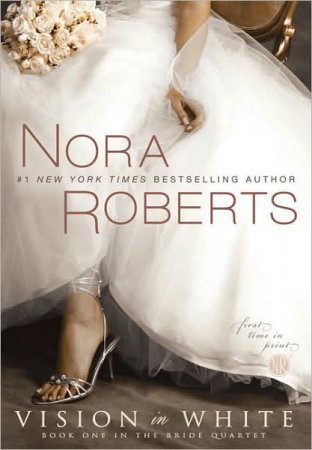 Vision in White
Vision in White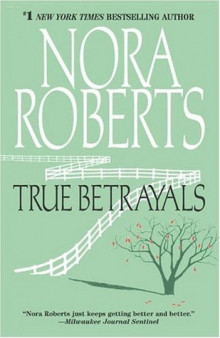 True Betrayals
True Betrayals The Next Always
The Next Always A Man for Amanda
A Man for Amanda Born in Fire
Born in Fire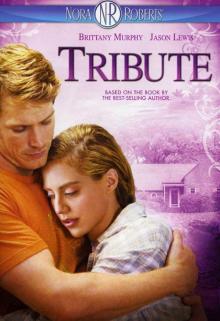 Tribute
Tribute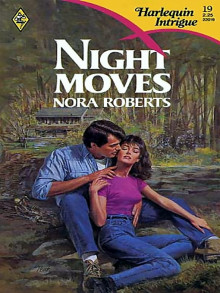 Night Moves
Night Moves Dance Upon the Air
Dance Upon the Air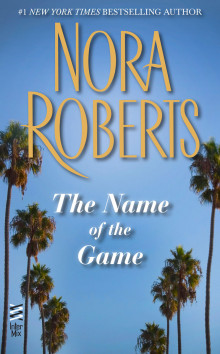 The Name of the Game
The Name of the Game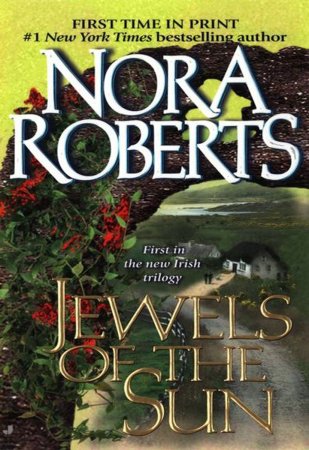 Jewels of the Sun
Jewels of the Sun River's End
River's End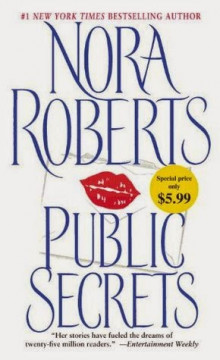 Public Secrets
Public Secrets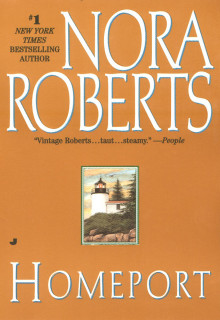 Homeport
Homeport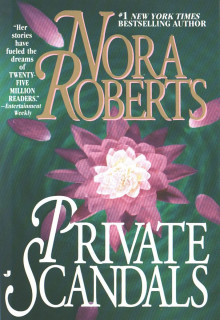 Private Scandals
Private Scandals The Witness
The Witness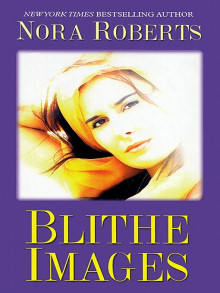 Blithe Images
Blithe Images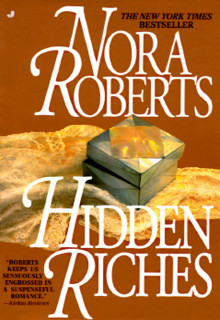 Hidden Riches
Hidden Riches Key of Light
Key of Light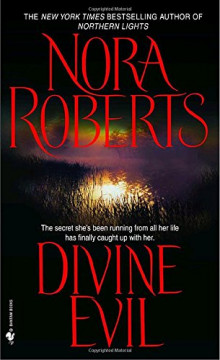 Divine Evil
Divine Evil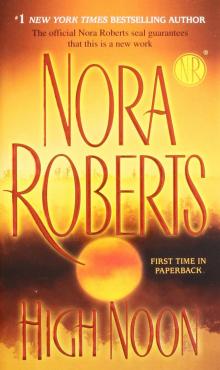 High Noon
High Noon Blue Dahlia
Blue Dahlia Sea Swept
Sea Swept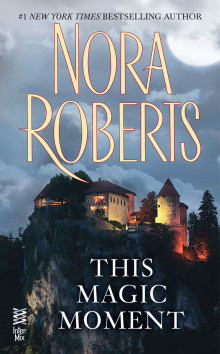 This Magic Moment
This Magic Moment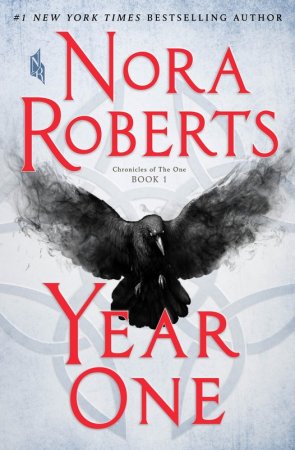 Year One
Year One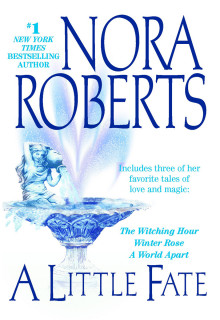 A Little Fate
A Little Fate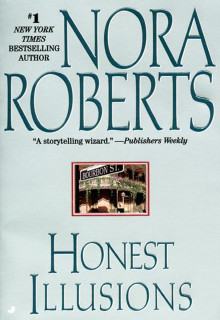 Honest Illusions
Honest Illusions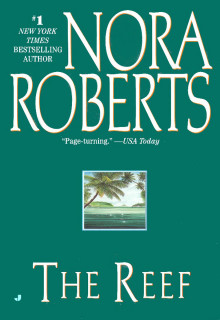 The Reef
The Reef Shelter in Place
Shelter in Place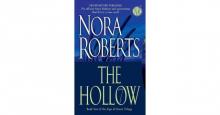 The Hollow
The Hollow Holding the Dream
Holding the Dream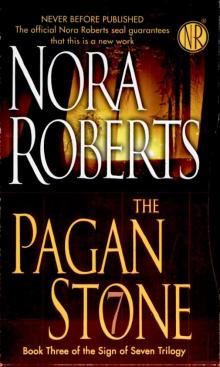 The Pagan Stone
The Pagan Stone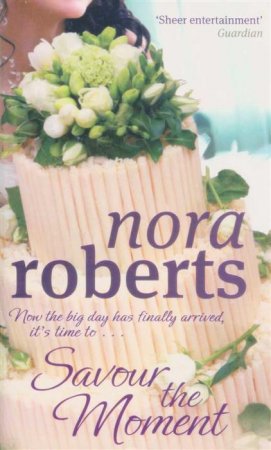 Savour the Moment
Savour the Moment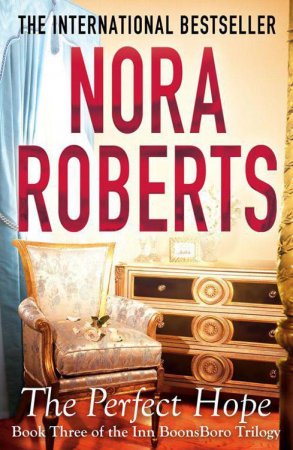 The Perfect Hope
The Perfect Hope Island of Glass
Island of Glass Happy Ever After
Happy Ever After Bed of Roses
Bed of Roses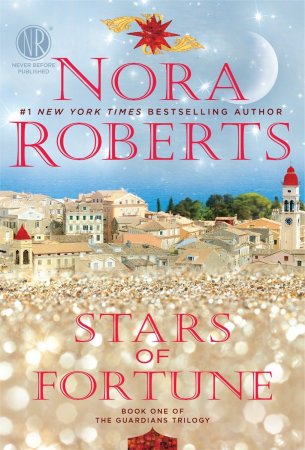 Stars of Fortune
Stars of Fortune Dark Witch
Dark Witch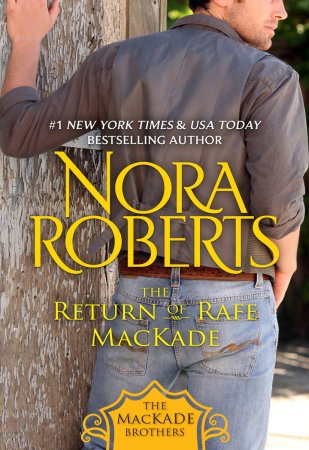 The Return of Rafe MacKade
The Return of Rafe MacKade Chesapeake Blue
Chesapeake Blue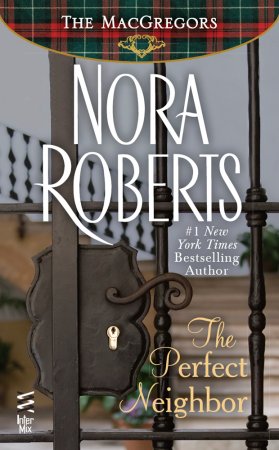 The Perfect Neighbor
The Perfect Neighbor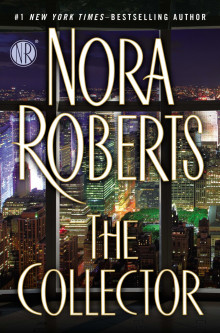 The Collector
The Collector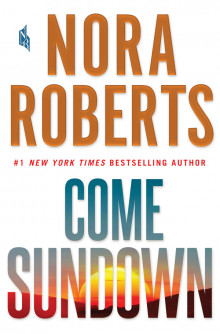 Come Sundown
Come Sundown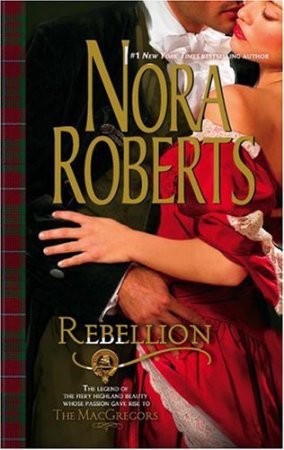 Rebellion
Rebellion Affaire Royale
Affaire Royale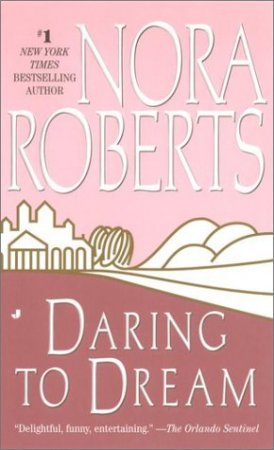 Daring to Dream
Daring to Dream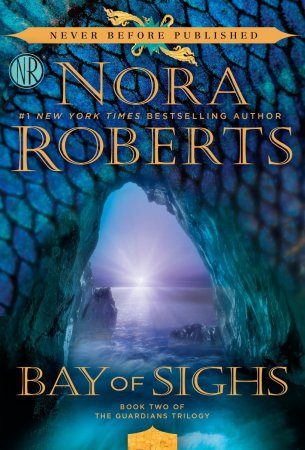 Bay of Sighs
Bay of Sighs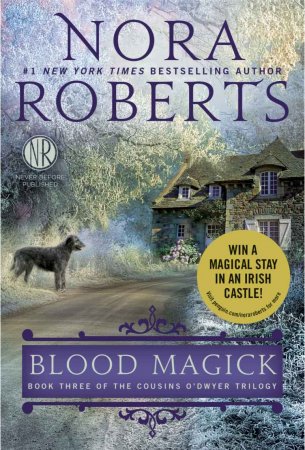 Blood Magick
Blood Magick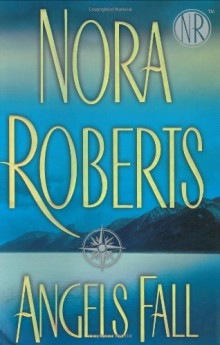 Angels Fall
Angels Fall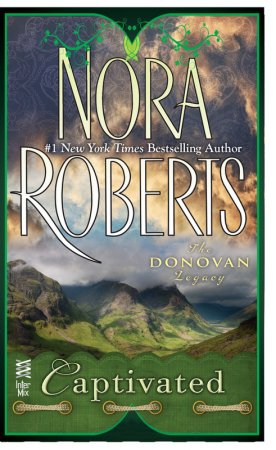 Captivated
Captivated The Last Boyfriend
The Last Boyfriend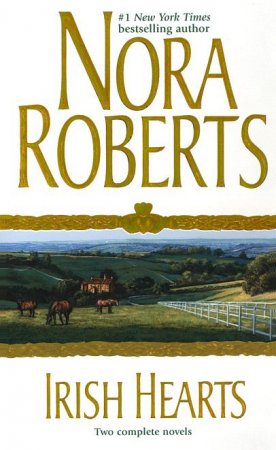 Irish Thoroughbred
Irish Thoroughbred Inner Harbor
Inner Harbor The Right Path
The Right Path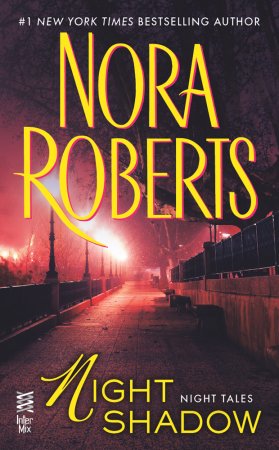 Night Shadow
Night Shadow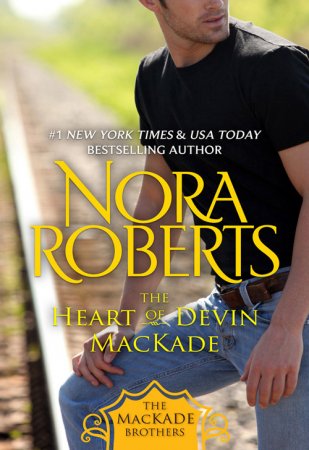 The Heart of Devin MacKade
The Heart of Devin MacKade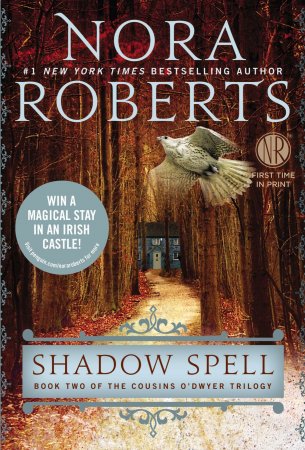 Shadow Spell
Shadow Spell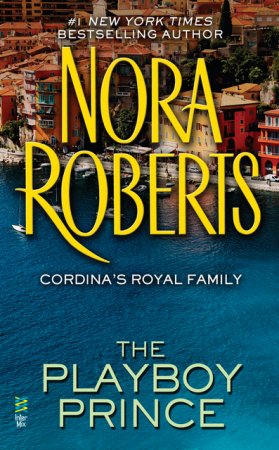 The Playboy Prince
The Playboy Prince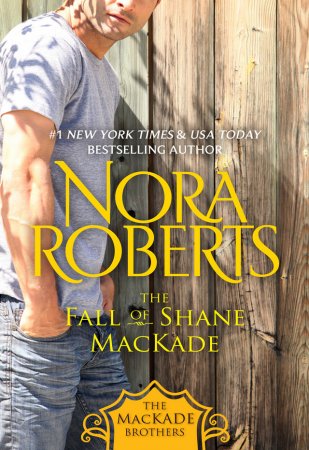 The Fall of Shane MacKade
The Fall of Shane MacKade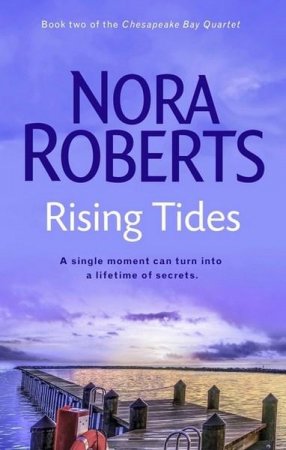 Rising Tides
Rising Tides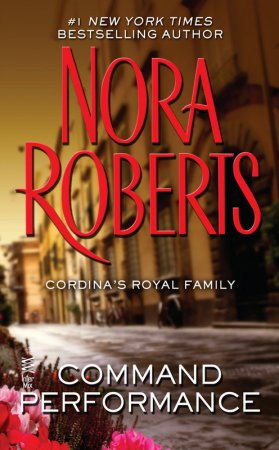 Command Performance
Command Performance Hidden Star
Hidden Star Cordina's Crown Jewel
Cordina's Crown Jewel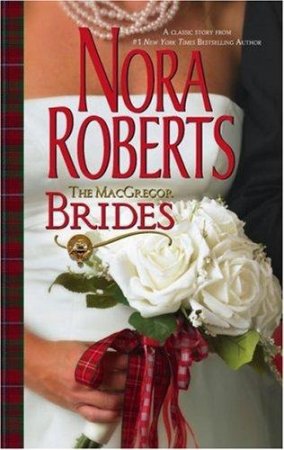 The MacGregor Brides
The MacGregor Brides The Pride of Jared MacKade
The Pride of Jared MacKade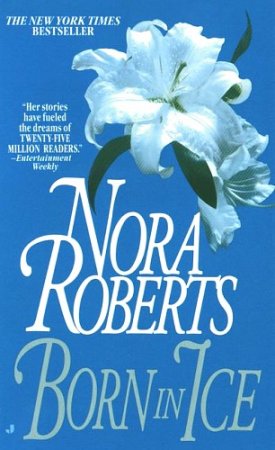 Born in Ice
Born in Ice Whiskey Beach
Whiskey Beach The Last Honest Woman
The Last Honest Woman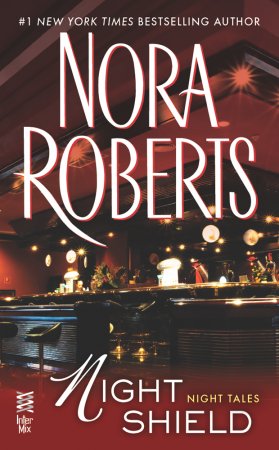 Night Shield
Night Shield Born in Shame
Born in Shame Secret Star
Secret Star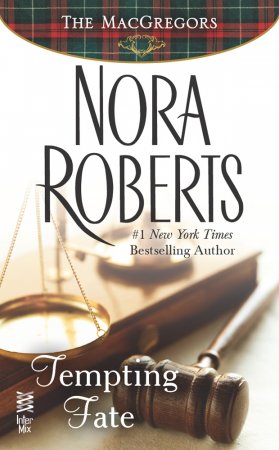 Tempting Fate
Tempting Fate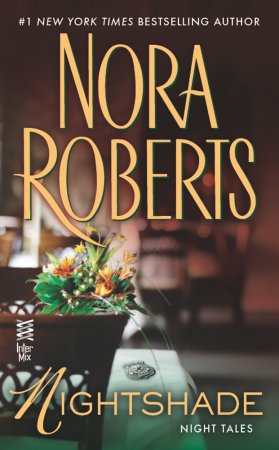 Nightshade
Nightshade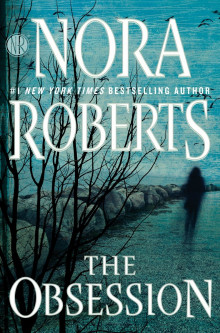 The Obsession
The Obsession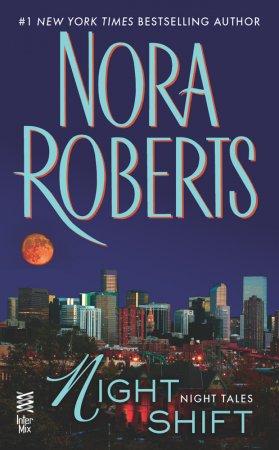 Night Shift
Night Shift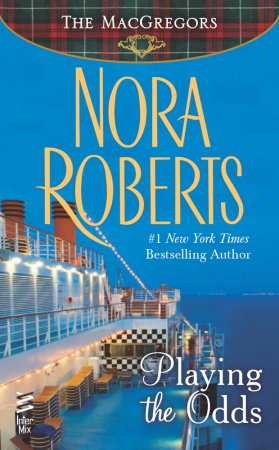 Playing The Odds
Playing The Odds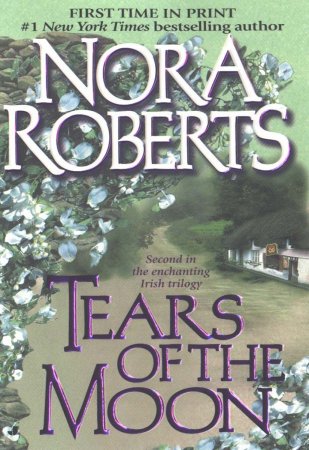 Tears of the Moon
Tears of the Moon One Man's Art
One Man's Art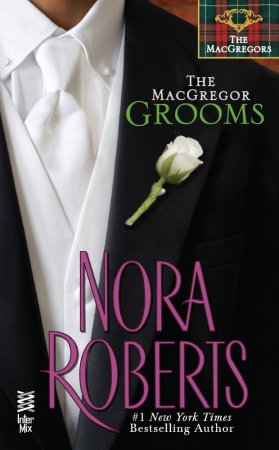 The MacGregor Groom
The MacGregor Groom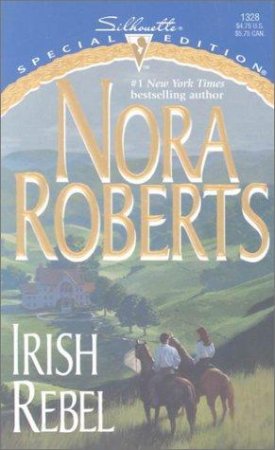 Irish Rebel
Irish Rebel Morrigan's Cross
Morrigan's Cross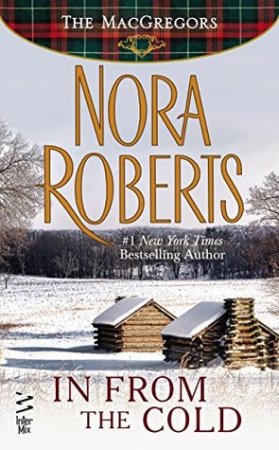 In From The Cold
In From The Cold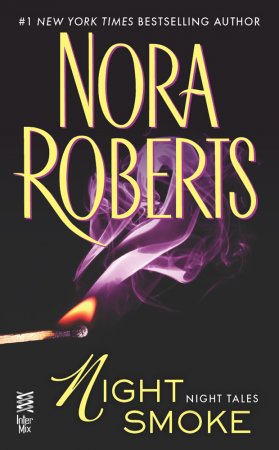 Night Smoke
Night Smoke Finding the Dream
Finding the Dream Red Lily
Red Lily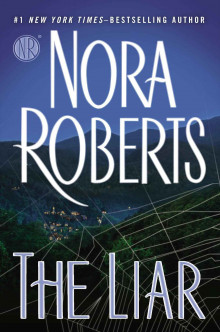 The Liar
The Liar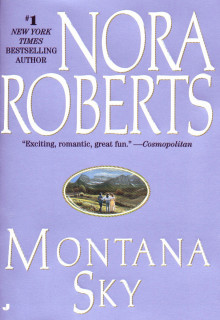 Montana Sky
Montana Sky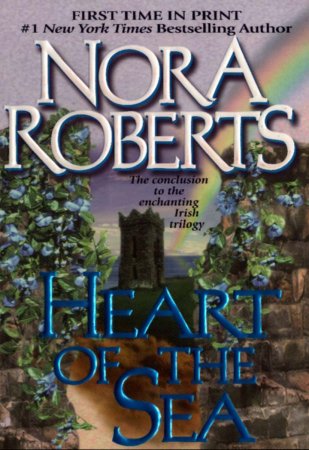 Heart of the Sea
Heart of the Sea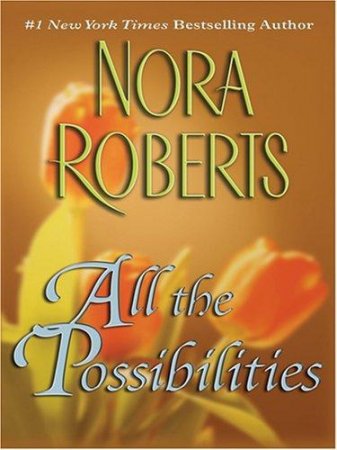 All The Possibilities
All The Possibilities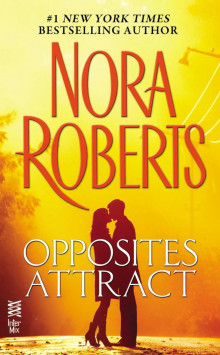 Opposites Attract
Opposites Attract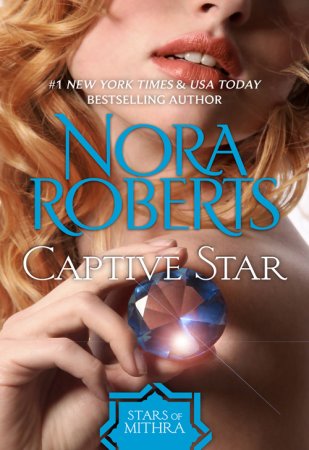 Captive Star
Captive Star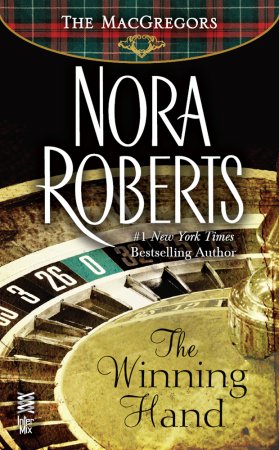 The Winning Hand
The Winning Hand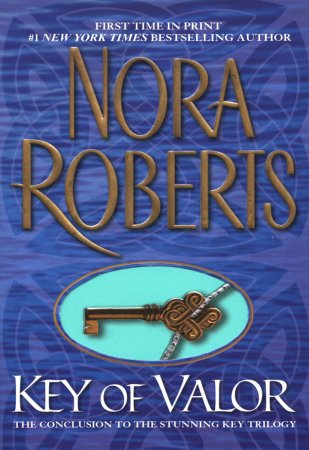 Key of Valor
Key of Valor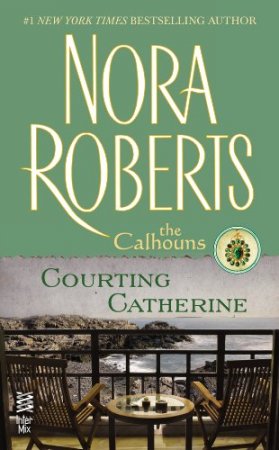 Courting Catherine
Courting Catherine Heaven and Earth
Heaven and Earth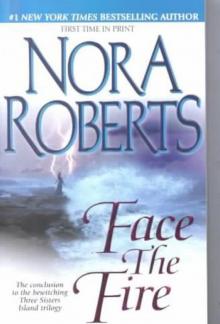 Face the Fire
Face the Fire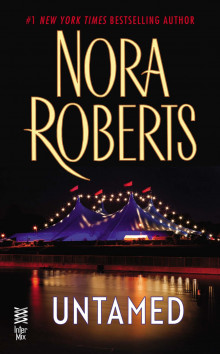 Untamed
Untamed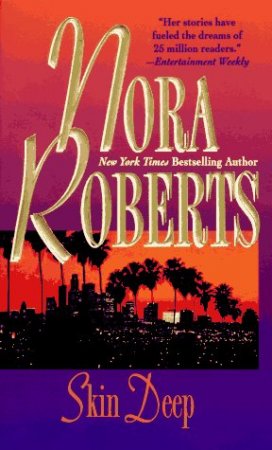 Skin Deep
Skin Deep Enchanted
Enchanted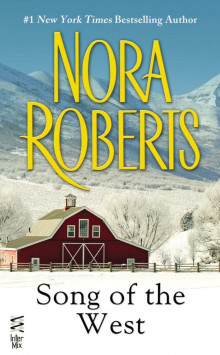 Song of the West
Song of the West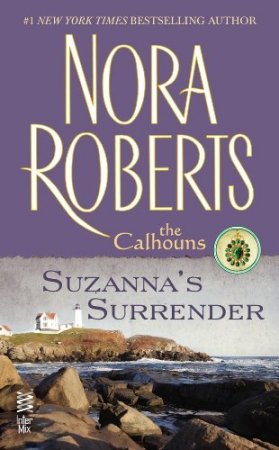 Suzanna's Surrender
Suzanna's Surrender Entranced
Entranced Dance of the Gods
Dance of the Gods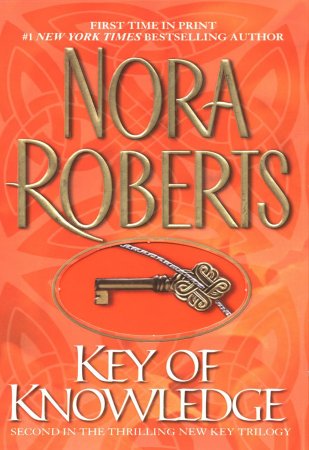 Key of Knowledge
Key of Knowledge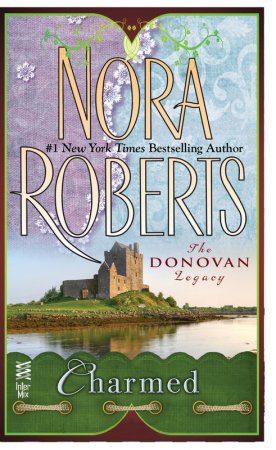 Charmed
Charmed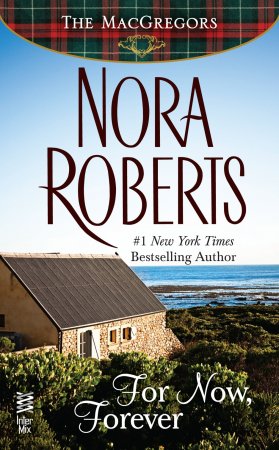 For Now, Forever
For Now, Forever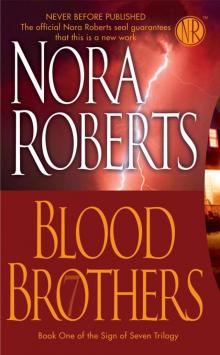 Blood Brothers
Blood Brothers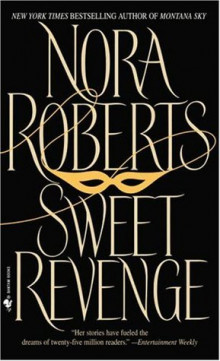 Sweet Revenge
Sweet Revenge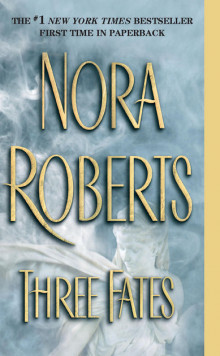 Three Fates
Three Fates Mind Over Matter
Mind Over Matter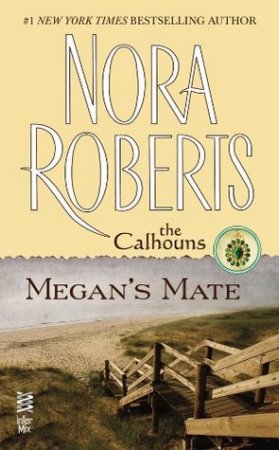 Megan's Mate
Megan's Mate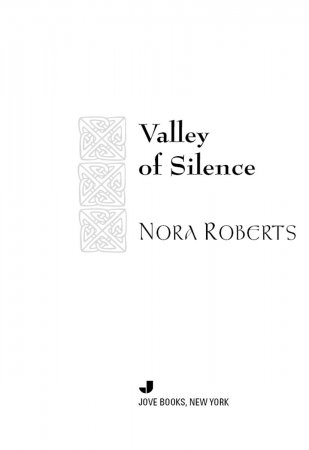 Valley of Silence
Valley of Silence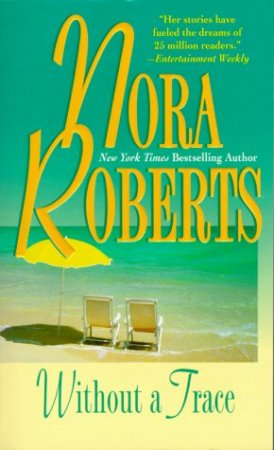 Without A Trace
Without A Trace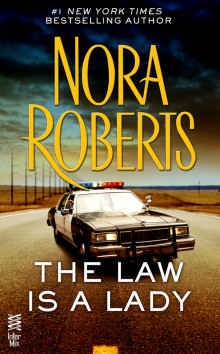 The Law is a Lady
The Law is a Lady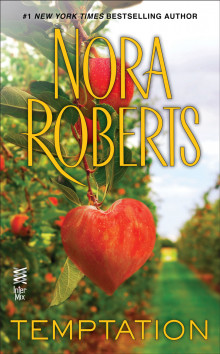 Temptation
Temptation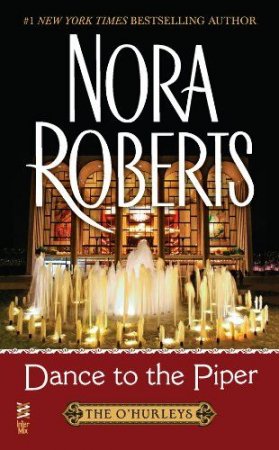 Dance to the Piper
Dance to the Piper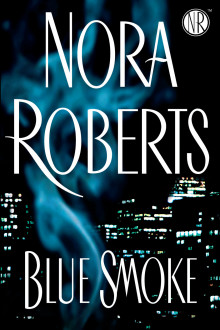 Blue Smoke
Blue Smoke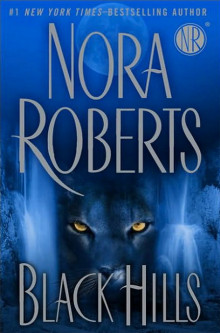 Black Hills
Black Hills The Heart's Victory
The Heart's Victory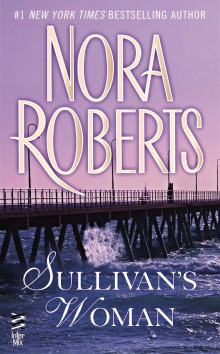 Sullivan's Woman
Sullivan's Woman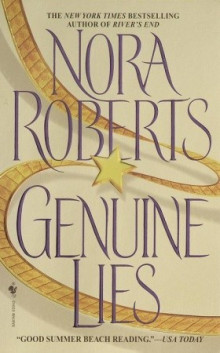 Genuine Lies
Genuine Lies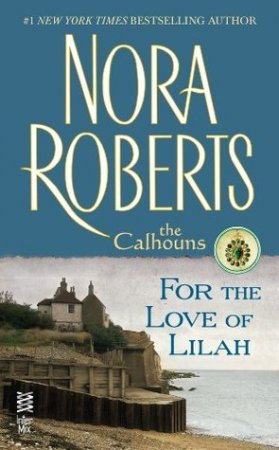 For the Love of Lilah
For the Love of Lilah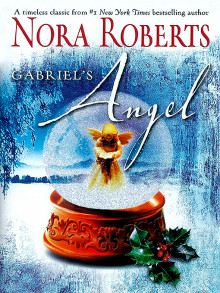 Gabriel's Angel
Gabriel's Angel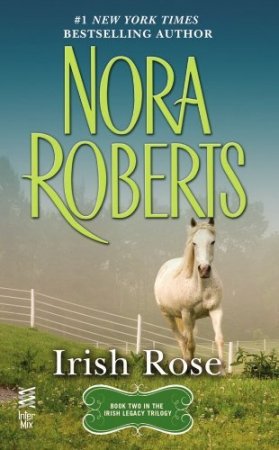 Irish Rose
Irish Rose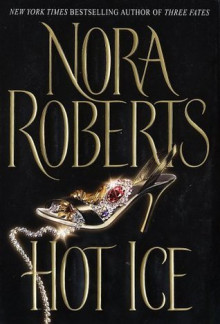 Hot Ice
Hot Ice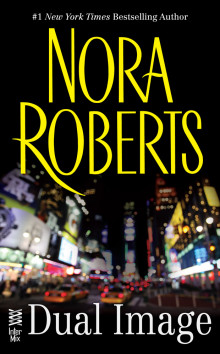 Dual Image
Dual Image Lawless
Lawless Catch My Heart
Catch My Heart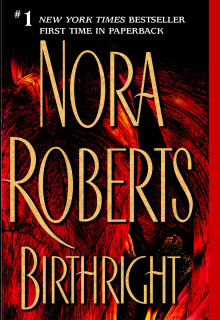 Birthright
Birthright First Impressions
First Impressions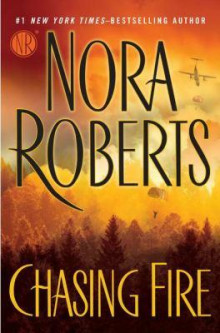 Chasing Fire
Chasing Fire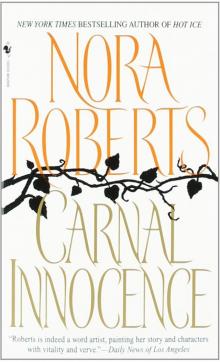 Carnal Innocence
Carnal Innocence Best Laid Plans
Best Laid Plans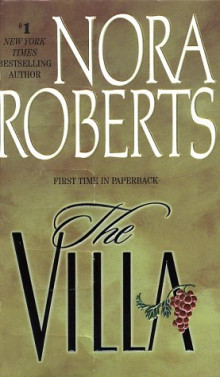 The Villa
The Villa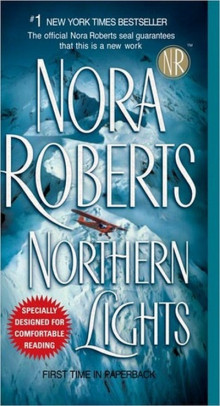 Northern Lights
Northern Lights Local Hero
Local Hero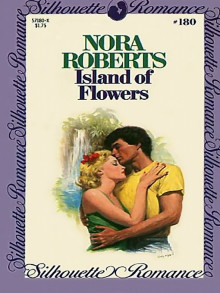 Island of Flowers
Island of Flowers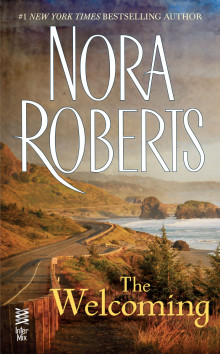 The Welcoming
The Welcoming All I Want for Christmas
All I Want for Christmas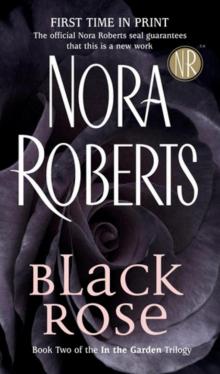 Black Rose
Black Rose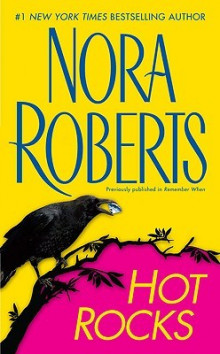 Hot Rocks
Hot Rocks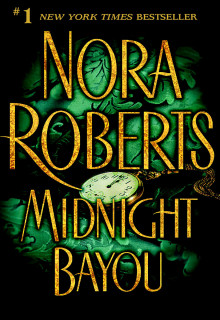 Midnight Bayou
Midnight Bayou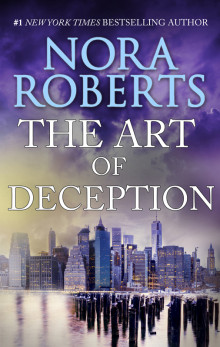 The Art of Deception
The Art of Deception From This Day
From This Day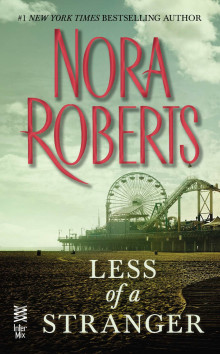 Less of a Stranger
Less of a Stranger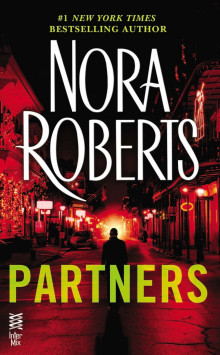 Partners
Partners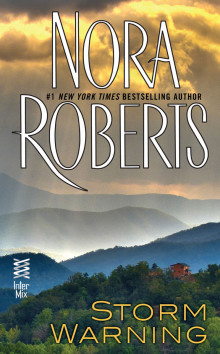 Storm Warning
Storm Warning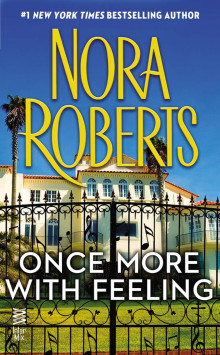 Once More With Feeling
Once More With Feeling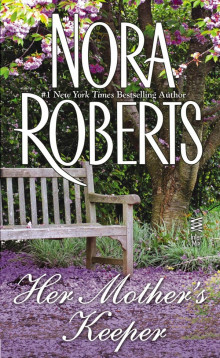 Her Mother's Keeper
Her Mother's Keeper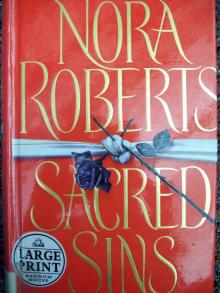 Sacred Sins
Sacred Sins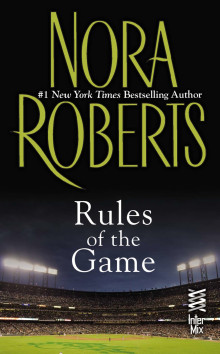 Rules of the Game
Rules of the Game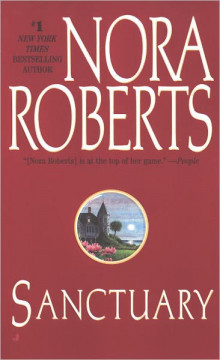 Sanctuary
Sanctuary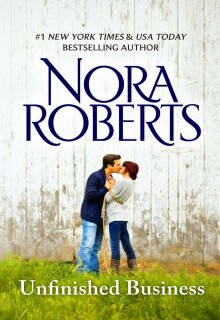 Unfinished Business
Unfinished Business Cordina's Royal Family Collection
Cordina's Royal Family Collection Dangerous Embrace
Dangerous Embrace One Summer
One Summer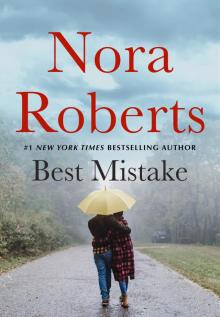 The Best Mistake
The Best Mistake Boundary Lines
Boundary Lines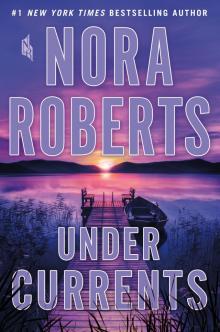 Under Currents
Under Currents The Stanislaski Series Collection, Volume 1
The Stanislaski Series Collection, Volume 1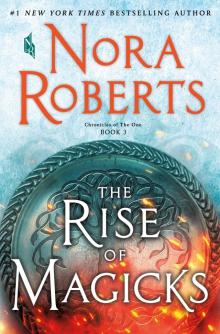 The Rise of Magicks
The Rise of Magicks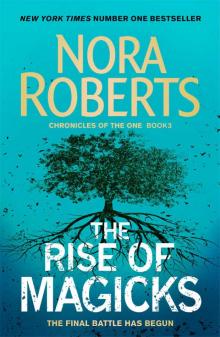 The Rise of Magicks (Chronicles of The One)
The Rise of Magicks (Chronicles of The One)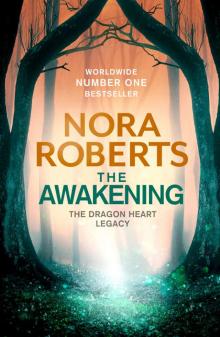 The Awakening: The Dragon Heart Legacy Book 1
The Awakening: The Dragon Heart Legacy Book 1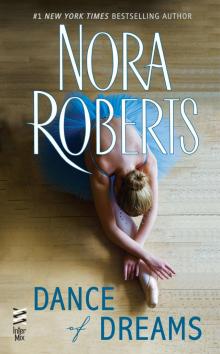 Dance of Dreams
Dance of Dreams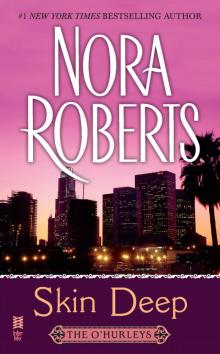 Skin Deep: The O'Hurleys
Skin Deep: The O'Hurleys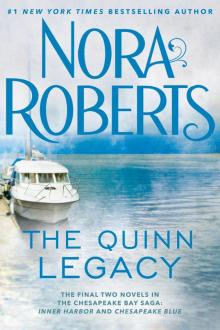 The Quinn Legacy: Inner Harbor ; Chesapeake Blue
The Quinn Legacy: Inner Harbor ; Chesapeake Blue![[Chronicles of the One 03.0] The Rise of Magicks Read online](http://i1.bookreadfree.com/11/chronicles_of_the_one_03_0_the_rise_of_magicks_preview.jpg) [Chronicles of the One 03.0] The Rise of Magicks
[Chronicles of the One 03.0] The Rise of Magicks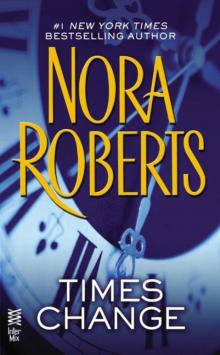 Times Change
Times Change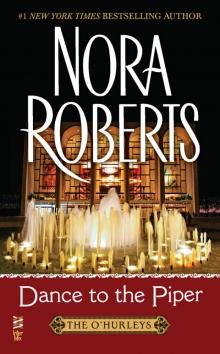 Dance to the Piper: The O'Hurleys
Dance to the Piper: The O'Hurleys Christmas In the Snow: Taming Natasha / Considering Kate
Christmas In the Snow: Taming Natasha / Considering Kate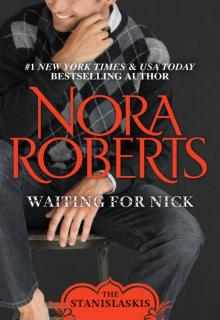 Waiting for Nick
Waiting for Nick Summer Desserts
Summer Desserts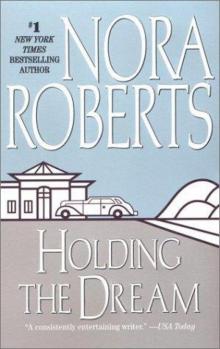 Dream 2 - Holding the Dream
Dream 2 - Holding the Dream The Novels of Nora Roberts, Volume 2
The Novels of Nora Roberts, Volume 2 In the Garden Trilogy
In the Garden Trilogy Eight Classic Nora Roberts Romantic Suspense Novels
Eight Classic Nora Roberts Romantic Suspense Novels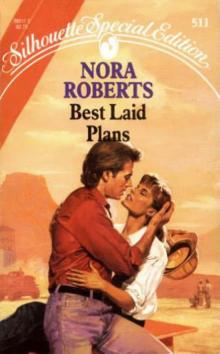 Best Laid Plans jh-2
Best Laid Plans jh-2 From the Heart
From the Heart Holiday Wishes
Holiday Wishes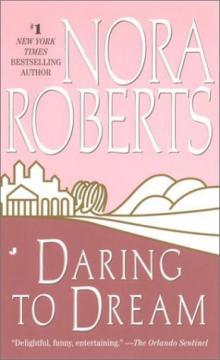 Dream 1 - Daring to Dream
Dream 1 - Daring to Dream Second Nature
Second Nature Summer Pleasures
Summer Pleasures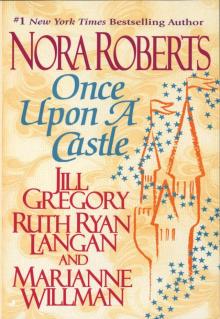 Once Upon a Castle
Once Upon a Castle Stars of Mithra Box Set: Captive StarHidden StarSecret Star
Stars of Mithra Box Set: Captive StarHidden StarSecret Star Impulse
Impulse The Irish Trilogy by Nora Roberts
The Irish Trilogy by Nora Roberts The Pride Of Jared Mackade tmb-2
The Pride Of Jared Mackade tmb-2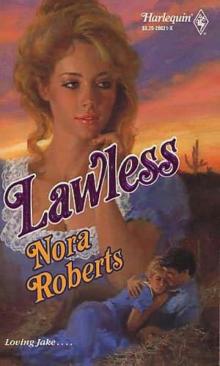 Lawless jh-3
Lawless jh-3 Taming Natasha
Taming Natasha Endless Summer
Endless Summer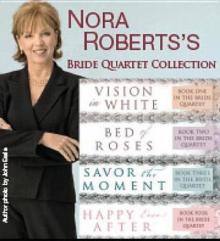 Bride Quartet Collection
Bride Quartet Collection Happy Ever After tbq-4
Happy Ever After tbq-4 Heart Of The Sea goa-3
Heart Of The Sea goa-3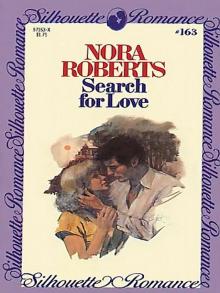 Search for Love
Search for Love Once upon a Dream
Once upon a Dream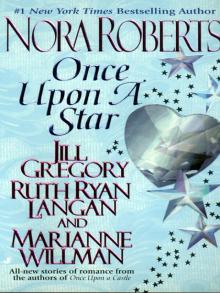 Once Upon a Star
Once Upon a Star Dream Trilogy
Dream Trilogy Risky Business
Risky Business The Novels of Nora Roberts, Volume 3
The Novels of Nora Roberts, Volume 3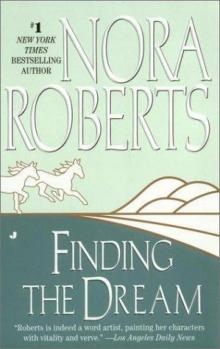 Dream 3 - Finding the Dream
Dream 3 - Finding the Dream Promises in Death id-34
Promises in Death id-34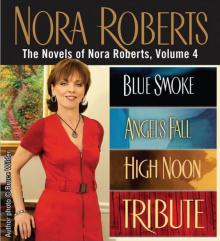 The Novels of Nora Roberts, Volume 4
The Novels of Nora Roberts, Volume 4 The Perfect Hope ib-3
The Perfect Hope ib-3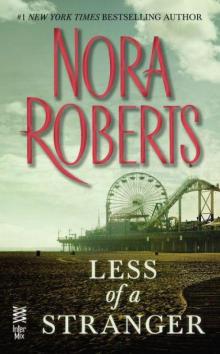 Less than a Stranger
Less than a Stranger Savour the Moment: Now the Big Day Has Finally Arrived, It's Time To...
Savour the Moment: Now the Big Day Has Finally Arrived, It's Time To... Convincing Alex
Convincing Alex Bed of Roses tbq-2
Bed of Roses tbq-2 Savour the Moment tbq-3
Savour the Moment tbq-3 Lessons Learned
Lessons Learned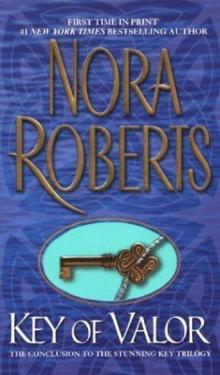 Key Of Valor k-3
Key Of Valor k-3 Red lily gt-3
Red lily gt-3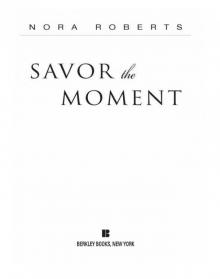 Savor the Moment
Savor the Moment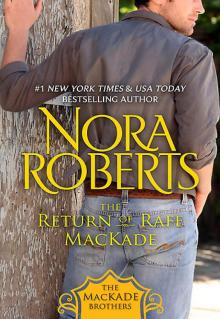 The Return Of Rafe Mackade tmb-1
The Return Of Rafe Mackade tmb-1 For The Love Of Lilah tcw-3
For The Love Of Lilah tcw-3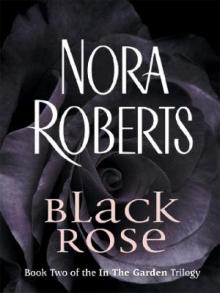 Black Rose gt-2
Black Rose gt-2 Novels: The Law is a Lady
Novels: The Law is a Lady Chesapeake Bay Saga 1-4
Chesapeake Bay Saga 1-4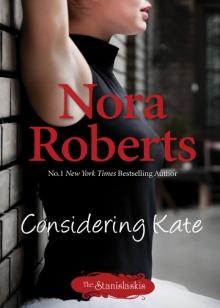 Considering Kate
Considering Kate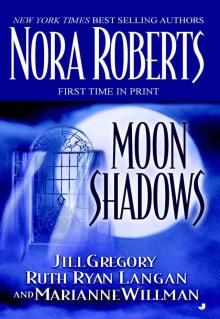 Moon Shadows
Moon Shadows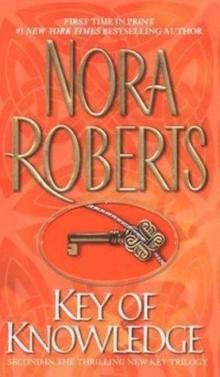 Key of Knowledge k-2
Key of Knowledge k-2 The Sign of Seven Trilogy
The Sign of Seven Trilogy Once Upon a Kiss
Once Upon a Kiss The Novels of Nora Roberts, Volume 5
The Novels of Nora Roberts, Volume 5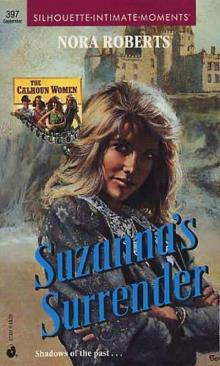 Suzanna's Surrender tcw-4
Suzanna's Surrender tcw-4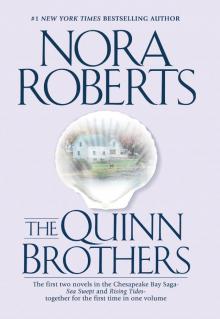 The Quinn Brothers
The Quinn Brothers Falling for Rachel
Falling for Rachel Brazen Virtue
Brazen Virtue Time Was
Time Was The Gallaghers of Ardmore Trilogy
The Gallaghers of Ardmore Trilogy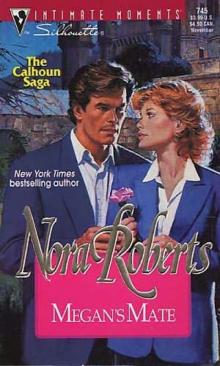 Megan's Mate tcw-5
Megan's Mate tcw-5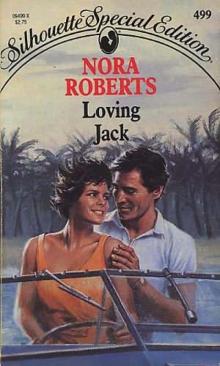 Loving Jack jh-1
Loving Jack jh-1 Rebellion & In From The Cold
Rebellion & In From The Cold Blue Dahlia gt-1
Blue Dahlia gt-1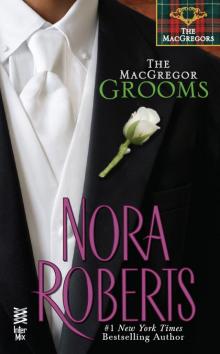 The MacGregor Grooms
The MacGregor Grooms The Next Always tibt-1
The Next Always tibt-1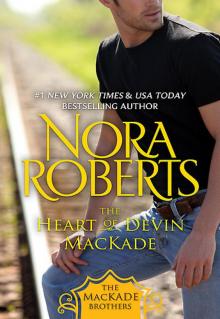 The Heart Of Devin Mackade tmb-3
The Heart Of Devin Mackade tmb-3 The Novels of Nora Roberts Volume 1
The Novels of Nora Roberts Volume 1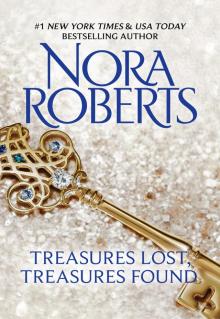 Treasures Lost, Treasures Found
Treasures Lost, Treasures Found Nora Roberts's Circle Trilogy
Nora Roberts's Circle Trilogy The Key Trilogy
The Key Trilogy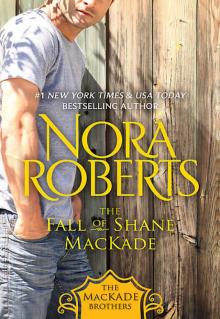 The Fall Of Shane Mackade tmb-4
The Fall Of Shane Mackade tmb-4 A Will And A Way
A Will And A Way Jewels of the Sun goa-1
Jewels of the Sun goa-1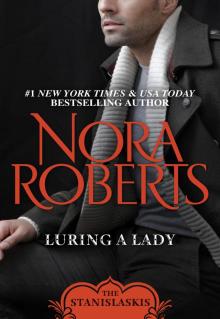 Luring a Lady
Luring a Lady